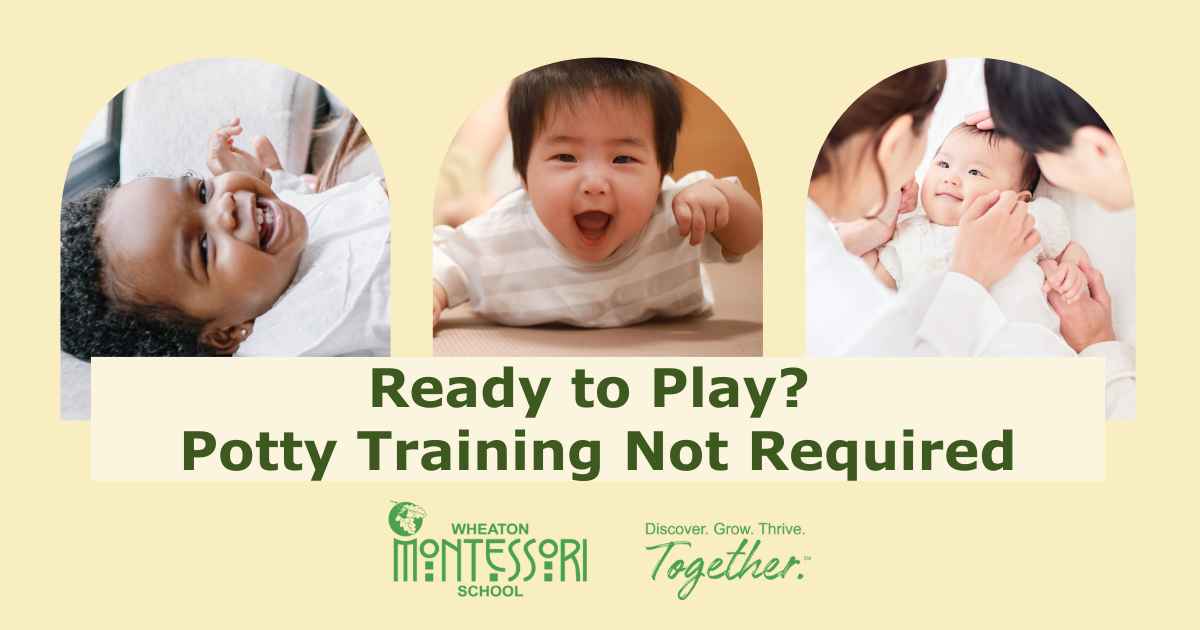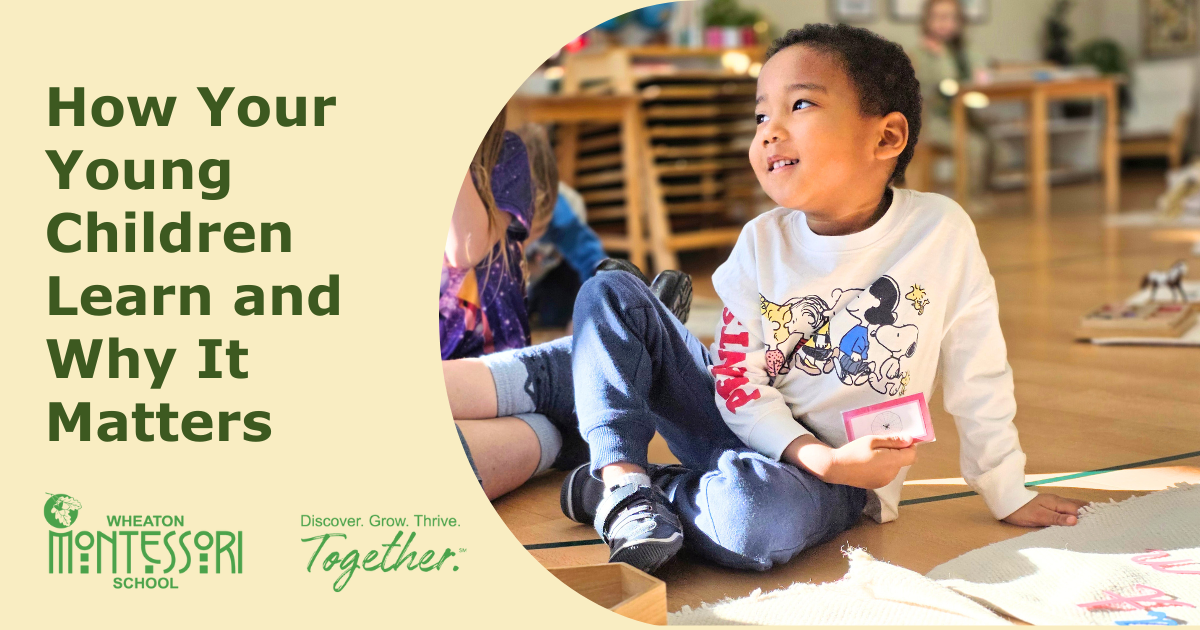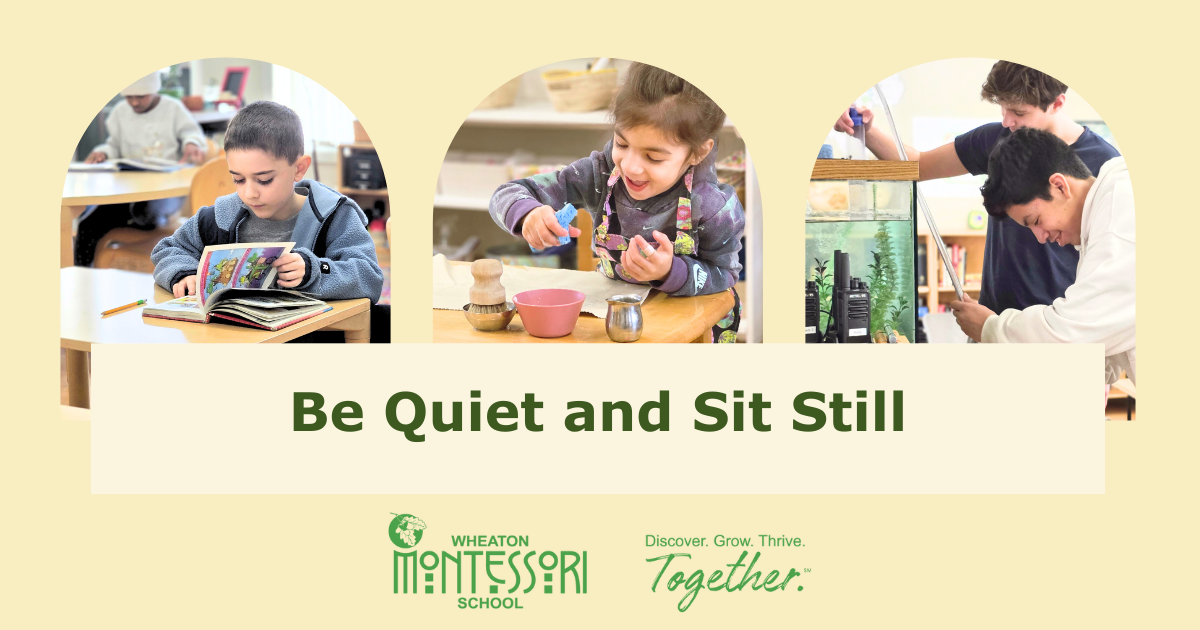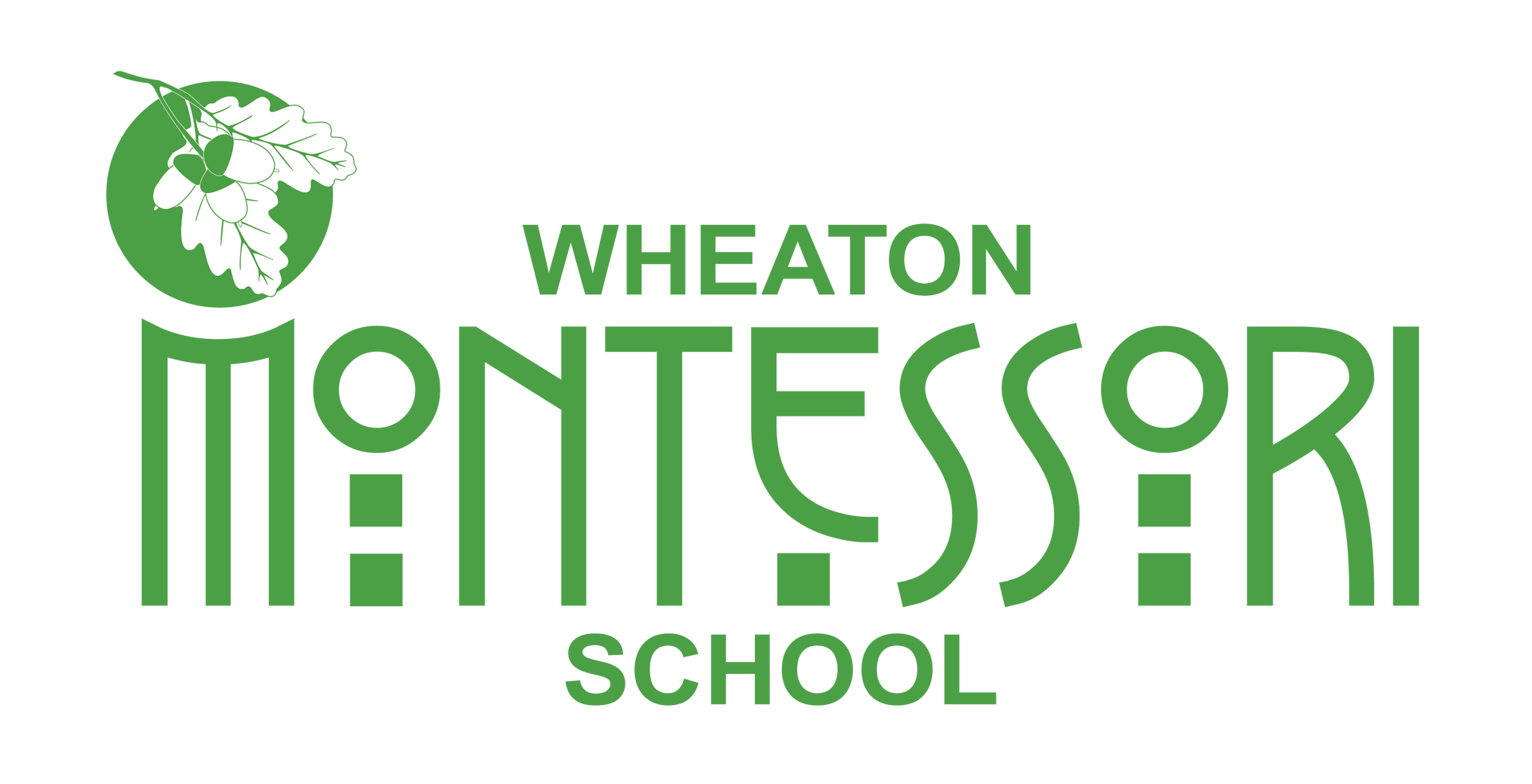
Potty Training Shouldn’t Hold Your Child Back
If you’re the parent of a bright, curious, fun-loving child, you already know how much joy they bring to every room they enter. You also know how much pressure there is around potty training, pressure that sometimes overshadows everything else your child is learning and doing well.
In many conventional preschools, healthy, social, academically ready children are excluded from moving up with their peers if they haven’t mastered using the toilet. One skill, potty training, becomes the deciding factor for whether they are “ready”.
At Wheaton Montessori School, we believe that using the restroom is just one skill among many. It is not, and should not be, the measure of your child’s readiness or success.
What Parents Often Ask About Potty Training and School
- Does my child need to be fully potty-trained to start school?
- What happens if my child has an accident during the day?
- Will teachers help my child if they need to use the bathroom?
- Is there a grace period if my child is still learning?
- How independent does my child need to be in the bathroom? (e.g., wiping, washing hands, managing clothing)
- What if my child regresses after starting school?
- How do you handle children who are afraid or reluctant to use the school bathroom?
- Are pull-ups allowed if my child is close but not quite ready?
- How do you keep the bathroom routine consistent between home and school?
Our team of trained Montessori teachers answers these questions with confidence and compassion:
“We’re not worried about your child’s current level of toileting independence, awareness, or even interest. What we do care about is making sure your child is included, learning alongside younger and older classmates, building confidence, and practicing skills at their own pace. Here, your child is known for their strengths, supported in areas that are still developing, and given the gift of time. And with time and practice, every child gets there.”
Potty Training Is Big Work
Learning how to use the toilet is big work for a young child. Just like learning to read, some children master it early and with ease, while others need more time and practice. Neither path is “better”; they are simply different.
Excluding a child who is ready for academic challenges, social growth, and independence outside the home, just because they haven’t mastered this one skill, only limits them. At Wheaton Montessori School, we believe in meeting children at their peak of curiosity and readiness, and that includes helping them practice toileting without letting it hold them back.
Partnering With You
Every child’s timeline looks different. And that’s okay. At Wheaton Montessori School, we’ve got you.
We invite you to schedule a school tour and learn more about our classrooms and see how we partner with families to celebrate children exactly as they are, curious, capable, and full of potential. Together, we’ll keep every aspect of life appropriately challenged, but never forced.
Your child is exactly who they are meant to be right now. Your parenting is enough right now. Forget the pressure of curated social media feeds, let’s enjoy these precious early years together.


